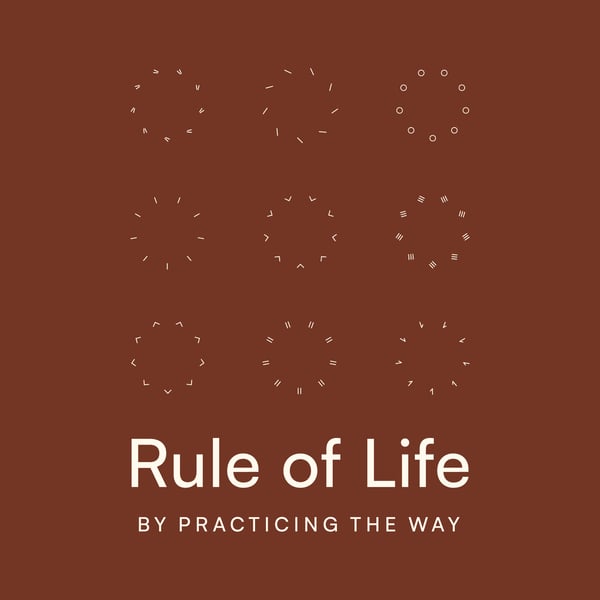Scripture 02: Scripture as a Cross-Cultural Experience
Rule of Life
Practicing the Way
4.8 • 700 Ratings
🗓️ 11 February 2025
⏱️ 43 minutes
🧾️ Download transcript
Summary
BibleProject’s Dr. Tim Mackie, Dr. Brittany Kim, and Hakeem Bradley continue a conversation with John Mark around BibleProject’s seven-part paradigm for understanding Scripture.
Episode 02 addresses common struggles with interpreting ancient texts, such as reconciling difficult laws or cultural norms with modern values, and how to approach puzzling or morally complex passages with patience and respect for their historical and cultural settings. This episode also explores the messianic theme woven throughout the library of Scripture and why scholars refer to the Bible as a unified story that points to Jesus.
This podcast accompanies the Scripture Practice, a four-session experience designed to help your community read the Bible as apprentices of Jesus. Learn more at practicingtheway.org/scripture.
Our Practices are free, thanks to the generosity of The Circle and other givers. Learn more about The Circle at practicingtheway.org/give. Run a Practice with your community and find other resources at practicingtheway.org/resources.
Transcript
Click on a timestamp to play from that location
| 0:00.0 | You're listening to the Rule of Life podcast from practicing the way. |
| 0:05.1 | In each season, we explore an ancient practice from the way of Jesus and its relevance for the modern era. |
| 0:11.6 | This is Season 6, Scripture. Hey, everybody, welcome back to the Rule of Life podcast. |
| 0:40.0 | Episode two. I'm here at the Bible Project in Portland, Oregon with Tim Mackie and the scholar team. Great to be with you. And we're |
| 0:46.2 | exploring the Bible Project seven kind of pillars of how to read scripture. We got through all of one in our first episode. And so up on the docket |
| 0:57.2 | for episode two is pillars two, three, and four. All right, number two, let's move on. |
| 1:03.6 | Bible is ancient literature. The Bible was written in another time in culture, and we need to |
| 1:09.2 | honor that ancient historical context as we come to |
| 1:12.0 | understand it better. In the marriage of divine and human in the person of Jesus means that he was |
| 1:19.6 | born from a Jewish mother in a small town south of Jerusalem at a particular time and place. |
| 1:27.1 | He grew up speaking |
| 1:29.2 | Aramaic, you know, liturgical Hebrew in synagogue, and probably having to learn |
| 1:35.9 | enough Greek or Latin to get along, you know, with his neighbors. And that is God. |
| 1:50.4 | Wow. As human. So in the similar way, like these texts were written in ancient Hebrew and Aramaic and Greek. And that just language itself is an expression of culture. |
| 1:56.6 | Yes. And so to understand what these words, any of these words mean, you have to know something |
| 2:04.1 | about the culture and the network of relationships and ride in history and food and views |
| 2:13.2 | about children and marriage and the land. |
| 2:15.6 | What's the saying in biblical scholarship? |
| 2:19.6 | Words don't have a meaning. Meanings have a word. Yeah. Yeah. What's the saying in biblical scholarship, words don't have a meaning, meanings have a word? |
| 2:21.0 | Yeah, yeah, that's right. |
| 2:24.0 | You know, like I grew up in the word study view of the Bible. |
| 2:27.2 | Like you're going to look up this word as if the word always means the exact, |
... |
Please login to see the full transcript.
Disclaimer: The podcast and artwork embedded on this page are from Practicing the Way, and are the property of its owner and not affiliated with or endorsed by Tapesearch.
Generated transcripts are the property of Practicing the Way and are distributed freely under the Fair Use doctrine. Transcripts generated by Tapesearch are not guaranteed to be accurate.
Copyright © Tapesearch 2025.

